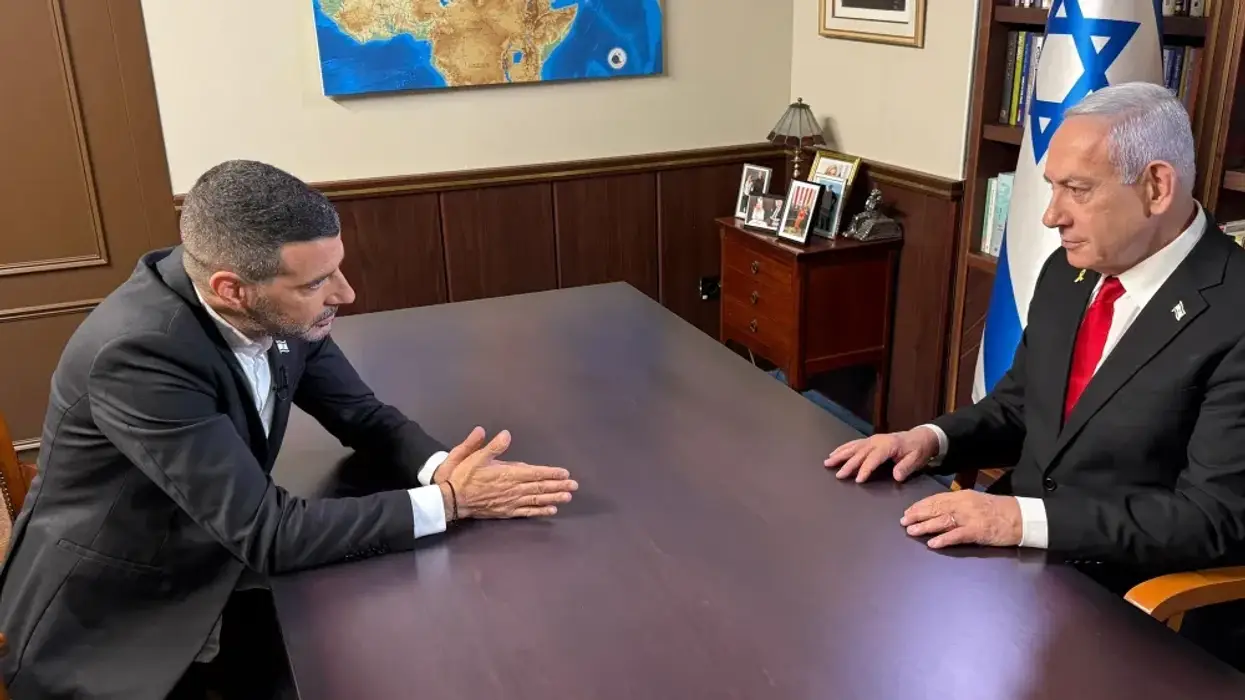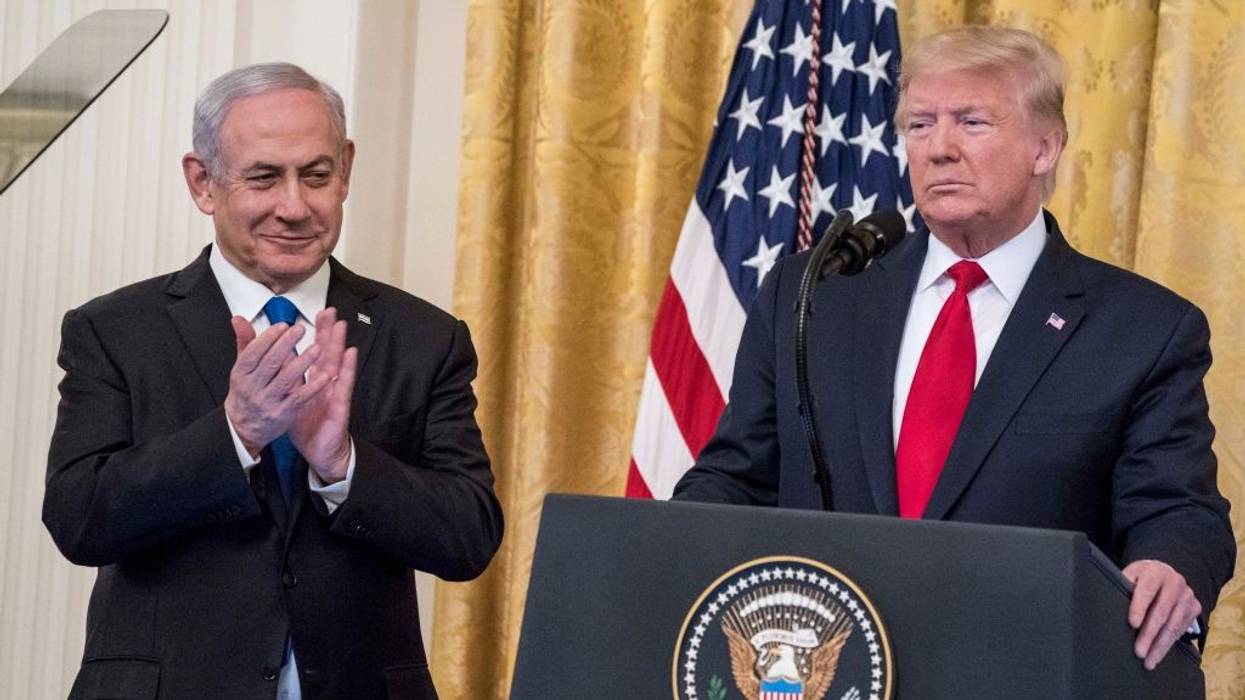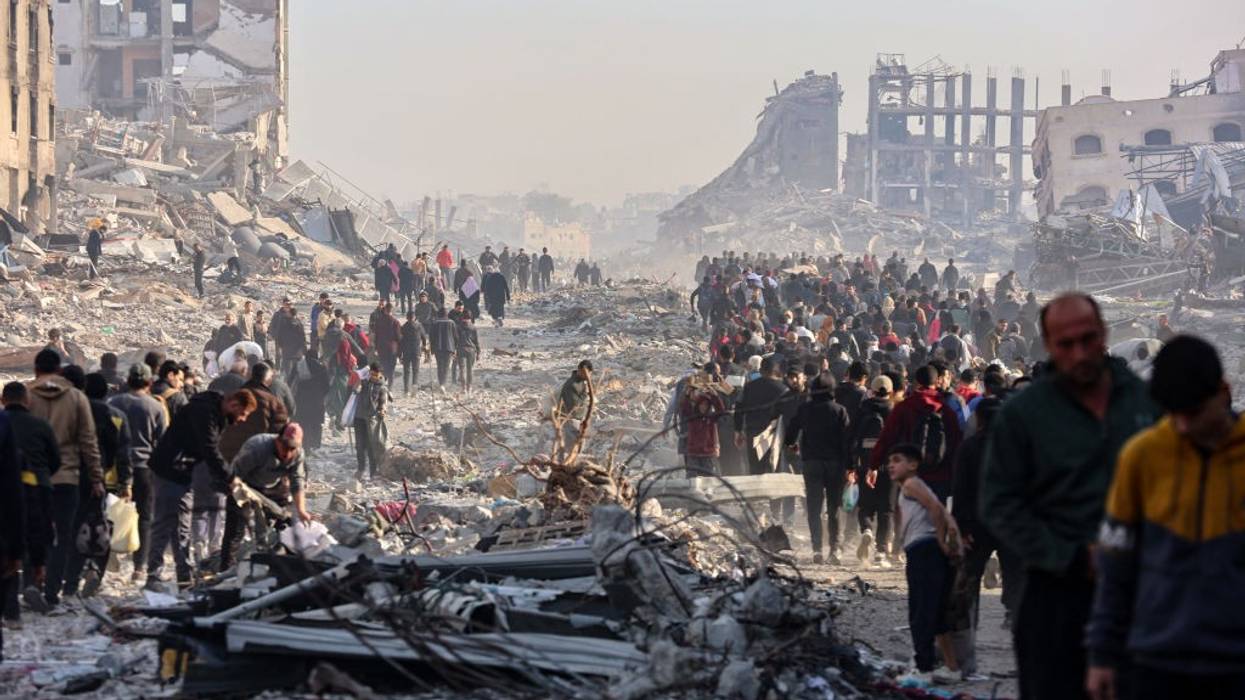Arab World Condemns Netanyahu's Support for 'Expansionist Colonial' Vision of 'Greater Israel'
In supporting the notion of "Greater Israel," the prime minister suggested he supported efforts to expand Israel's borders by conquering large parts of several of its neighboring countries.
Israeli Prime Minister Benjamin Netanyahu is facing condemnation after he endorsed the goal of establishing "Greater Israel."
Many interpreted that as a promise to further expand Israel's borders into other parts of the Arab world.
As the Times of Israel explains:
The term Greater Israel refers to Israel in expanded borders in accordance with biblical or historical descriptions, and has many versions, some of which include parts of today's Jordan, Lebanon, Syria, Egypt, Iraq and Saudi Arabia...
It is still adopted by some far-right figures in Israel who express a desire to annex or eventually control many of those territories.
In an interview Tuesday on Israel's i24 TV network, interviewer Sharon Gal—a former right-wing member of the Knesset—handed Netanyahu an amulet depicting what he said was "the Promised Land."
"This is my vision," said Gal, before asking Netanyahu, "Do you connect to the vision?"
Netanyahu responded, "Very much."
Gal then stressed that the map "is Greater Israel."
"If you ask me, we are here," Netanyahu responded. "You know I often mention my father. My parents' generation had to establish the state. And our generation, my generation, has to guarantee its continued existence. And I see that as a great mission."
Though the pendant itself was not visible onscreen, it was likely the one sold by Gal's company, which the Times of Israel says depicts a "relatively maximalist" map containing territory stretching from the Nile River to the Euphrates—an area encompassing swathes of Egypt, Lebanon, Jordan, Syria, and Iraq.
i24 has cut this provocative exchange from the video of the interview on its Hebrew or English language YouTube channels. However, it can still be viewed on i24's Hebrew-language website.
The idea of colonizing other parts of the Arab world according to historic Jewish texts is popular among the far-right portion of Netanyahu's governing coalition.
Religious Zionist Party leader Bezalel Smotrich, Israel's minister of finance, has said he wants a Jewish State "according to the books of our sages" that will "extend to Damascus," the capital of Syria, and suggested Israel will "slowly" conquer the other side of the Jordan River.
At a conference in March 2023, before Israel's current military assault on the Gaza Strip began, Smotrich spoke at a conference behind a podium depicting a map of "Greater Israel," which encompassed parts of Jordan, Syria, and Saudi Arabia.
Earlier this week, Smotrich unveiled a new 3,000-person settlement in the illegally-occupied West Bank known as E1, which he said "buries the idea of a Palestinian state" because "there is nothing to recognize and no one to recognize."
Netanyahu has long sought to downplay the idea that Israel has waged the destruction of Gaza or its attacks on Syria and Lebanon with the goal of expansion. Even as his government talks openly of permanently exiling the people of Gaza to make room for Jewish settlers, the prime minister has maintained that his goals are purely defensive.
Mustafa Barghouti—the leader of the Palestinian National Initiative, a liberal party in the West Bank's legislature—said Netanyahu's endorsement of "Greater Israel" means "he is on a mission to violate all international laws, commit crimes against humanity, and annex Palestinian and other Arab countries' territories." The Palestinian Authority likewise said Netanyahu's comments were an expression of Israel's "expansionist colonial policies."
That outrage has echoed across the Arab world.
Saudi Arabia expressed its "complete rejection of the settlement and expansionist ideas." Egypt said the remarks had "implications of provoking instability and reflecting a rejection of the pursuit of peace in the region, as well as an insistence on escalation."
Qatar, which has often tried to mediate a ceasefire between Israel and Hamas, called the comments "an extension of the occupation's approach based on arrogance, fueling crises, and conflicts."


